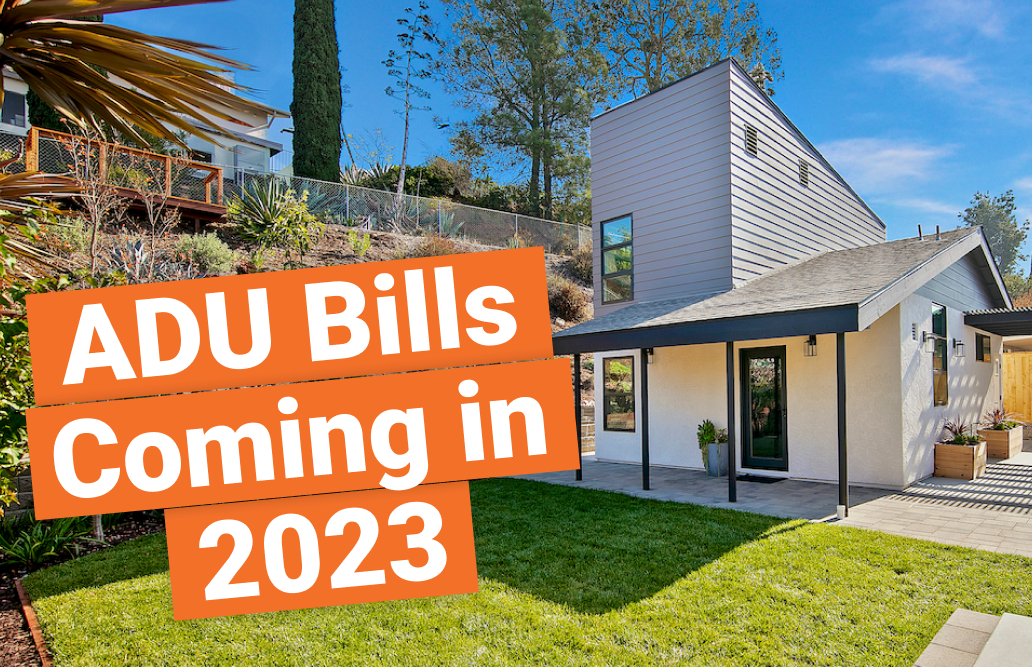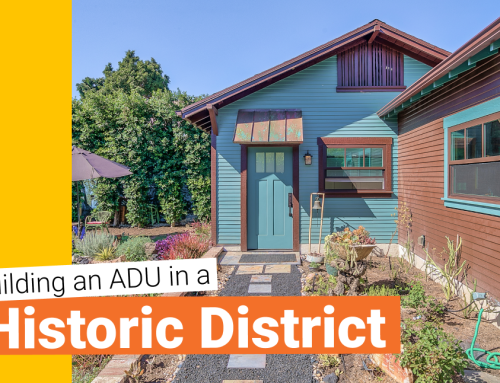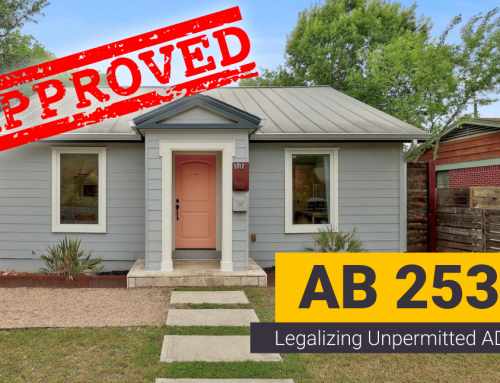Amazing news!
California Governor Gavin Newsom has signed SEVERAL new ADU bills that will come into effect starting in 2023.
If you’ve had your hand on the ADU pulse for the last couple of years, you’ll remember the six amazing bills in California that massively improved ADU regulations in 2020, and it feels like we’re reliving that moment all over again.
From height restrictions to setbacks, these are changes that are going to greatly improve homeowners’ experiences in building their dream ADUs.
Let’s walk through what each of these new bills entail.
AB 2221
We’ll start with the meatiest bill of the bunch, AB 2221. This is essentially a “clean-up” bill, meaning its main purpose is to clarify and define old legislation so that regulations are more clear-cut, but that doesn’t mean it’s not a game-changer.
Cracking down on permitting agencies
One of the biggest regulations that came about from the landslide of changes in 2020 was the requirement that your city had to either approve or deny your permit application within 60 days.
Sounds like a nice idea right? While this change was made with good intentions, it had an unsavory drawback. With cities facing immense pressure to pump out permits in a much shorter amount of time and incoming permit applications exponentially growing, a lot of planning departments resorted to just denying applications when their time ran out.
Once a lot of homeowners and designers caught wind of what cities were doing, they eased back on the pressure and just accepted that it was better to wait a bit longer than the 60 days than have their application rejected and have to resubmit.
To help remedy the situation, AB 2221 now requires cities to write ALL of the reasons your application was denied if they end up rejecting it, not just some. With this change, cities are now forced to review your application more carefully, rather than rejecting for one minor reason and calling it a day.
Additionally, the language was changed from “local agencies” to “permitting agencies”, so now every entity that has to issue a permit for your project is held to this 60-day requirement, not just your local planning department.
Height restrictions defined
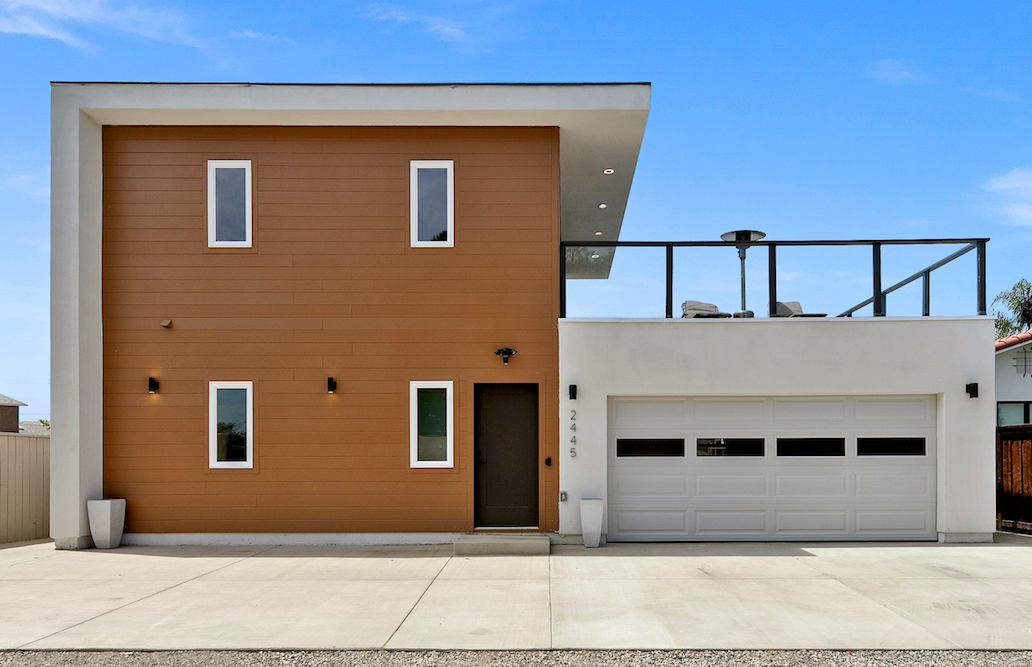
AB 2221 now requires all cities to allow at least a 16 ft height limit for ADUs. Cities can allow higher, but they cannot restrict you from building your ADU any lower.
What’s most interesting about this bill, is that there are added scenarios in which cities are required to allow you to build higher as well.
- 16 ft: Must be allowed under any circumstance.
- 18 ft: Must be allowed if the structure is within ½ a mile from public transit OR if the property already has a multi-family dwelling that is two stories high. This height allows for ADUs to be two stories.
- 25 ft: Must be allowed if the ADU is attached to the primary dwelling. This will also depend on the underlying zoning code of that property. Whichever is lowest will apply.
Front setbacks now fall under state exemption
Front setbacks now fall under the list of restrictions that cannot be enforced if it prevents an ADU from being built if it is under 800 sq ft.
For example, floor area ratio and open space ratio also fall under these exemptions. If any of these regulations set by your city prevent you from building an ADU, they are not enforceable.
SB 897
This is another “clean-up” bill and a lot of it overlaps with some of the others, so we’ll just cover some of the unique changes this bill brings up.
Unpermitted work is no problem
A lot of cities prohibited homeowners from building an ADU if there was found to be unpermitted work on the property. Often, bringing these errors up to code would take months, sometimes even years.
SB 897 eliminates that restriction unless the unpermitted work is a health or safety concern
Demolition go!
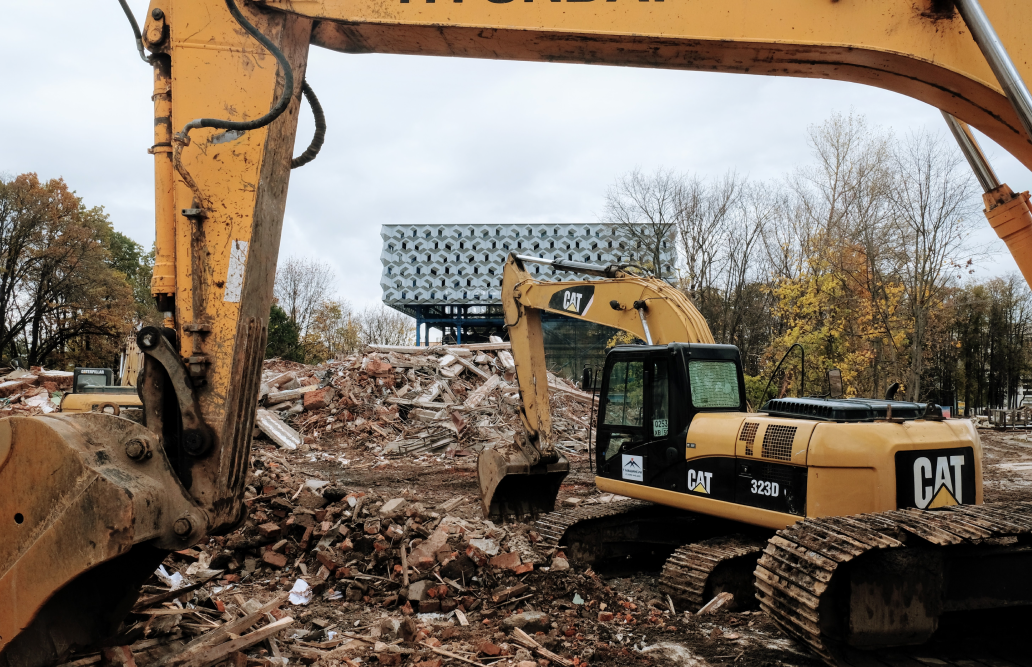
It’s no surprise that there are some cities out there in California that still aren’t ADU-friendly. Although cities are required to issue building permits if all requirements are met, some cities found a loophole for garage conversions.
If you are tearing down your garage and building your ADU where that garage was (yes, this is still considered a garage conversion), cities could withhold the demolition permit.
Now, with SB 897, cities are required to issue the demolition permit if the ADU permit is issued. Under this new bill, you are also not required to post a public notice about the demolition.
Fire sprinklers who?
Building an ADU will no longer trigger a group R occupancy change to your property. What does that mean?
It means that if you build an ADU, it will not trigger a requirement for fire sprinklers in the primary dwelling. We noticed this was a big annoyance for some of our clients in the past!
Honorable mention
We’re surprised this needed to be said. When you build a JADU (junior accessory dwelling unit) without a bathroom, the bathroom in the primary dwelling needs to be accessible to the JADU. SB 897 makes this more explicit.
AB 916
While this bill isn’t ADU specific, it was originally drafted with ADUs in mind. Unfortunately, the ADU terminology language was removed after some controversy, but that doesn’t mean it’s not a great bill!
AB 916 allows you to convert an interior space within your primary dwelling into a bedroom without a public hearing.
This is great news for homeowners that are looking to increase the equity on their home. What does this mean for ADUs? Nothing at the moment, but we’re curious to see how this bill will improve over time.
AB 157
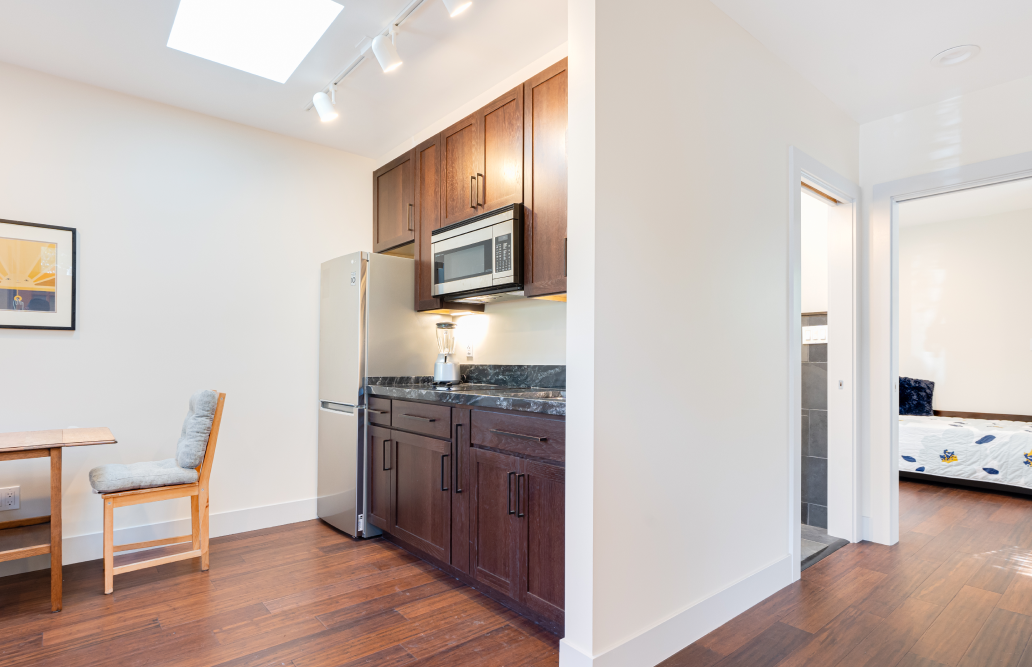
We’ve all seen how beneficial the $40K CalHFA has been for so many homeowners. AB 157 is now requiring CalHFA to convene a working group to develop recommendations to assist homeowners in qualifying for loans to construct ADUs and JADUs on their property and to increase access to capital for homeowners interested in building ADUs.
We’re excited to see what they bring to the table by July 1st, 2023!
ADUs aren’t slowing down any time soon
We’re thrilled that ADUs have grown in popularity enough to warrant these positive changes. Most of these changes will go into effect on January 1st, 2023 and as we saw back in 2020, ADU designers and builders are about to be really busy.
That’s why right now is the time to get your project started. If you start the design process now, you’ll have your construction drawings ready to be submitted right when these changes will already be in effect. Get ahead of the curve with an Maxable.
Maxable has a network of qualified and experienced ADU professionals in your area that have already studied these regulations changes and are ready to take on your project. Click here check your address.

